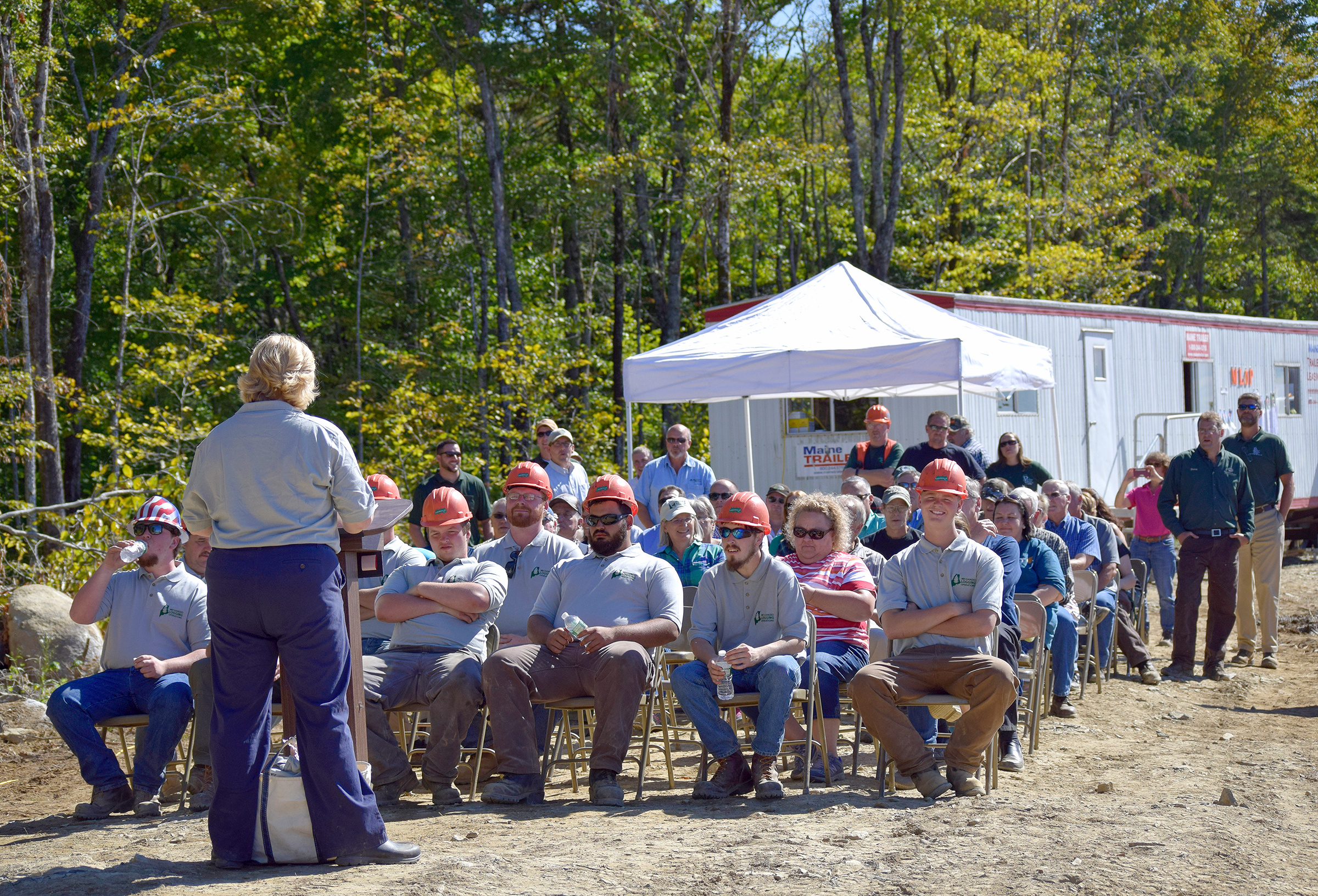
CHAPMAN, Maine — The second session of Maine’s Mechanized Logging Operations training will soon start in a quiet part of the woods in Chapman.
Developed through a partnership between Northern Maine Community College, Eastern Maine Community College, Washington County Community College, and the Professional Logging Contractors of Maine (PLC), this unique program addresses the growing need for skilled workers in the industry. Many of the current operators are approaching retirement age, creating a shortage of trained loggers.
The first session of the 12-week certificate program was held last summer in Millinocket. The course trains operators on some of the highly technical equipment used for 95 percent of the logging that occurs in Maine. The machinery includes: feller bunchers, cut-to-length harvesters, delimbers, grapple skidders and forwarders.
Students will gain a broad overview of the most common mechanical systems found on modern timber harvesting equipment. They will also become familiar with environmental regulations, safety, logging economics and basic maintenance.
The first few weeks of the program include classroom training, where students also earn industry standard certifications for safety and first aid. Under the guidance of their instructors, students will soon be engaged in the hands-on portion of the training, working in real-life logging conditions to prepare them for good-paying careers in the logging industry.
Maine Quality Centers funded the program with monies from public sources and a 50 percent match from industry, making this a public/private partnership.
“The industry has been very generous about supporting the continuation this program. All of the harvesting equipment is donated from Milton CAT and Nortrax Inc. and Prentiss & Carlisle is providing the work site for the hands on training,” stated Leah Buck, NMCC’s assistant dean of continuing education and one of the developers of the program.
“Both the industry and the state of Maine recognize that logging is a vital piece of the Maine economy,” Buck said. “The investment in developing a well-trained workforce is vital to the industry’s future.”
The program was designed to respond to the industry’s need, in areas of the state with the most demand for skilled workers. It will relocate to those areas for each new session and will coincide with the time that is most beneficial to the industry to bring in new employees.
Organizers expect the next session will be held in the Calais region. Each session is hosted by the respective community college in that region.
Buck said Maine loggers are a vital part of the state’s forest products sector, which is worth an estimated $8.5 billion annually. Maine’s logging industry contributes $882 million to the state’s economy each year and supports more than 7,300 direct and indirect jobs in the state.
Submitted by the Development and College Relations Office of Northern Maine Community College.







